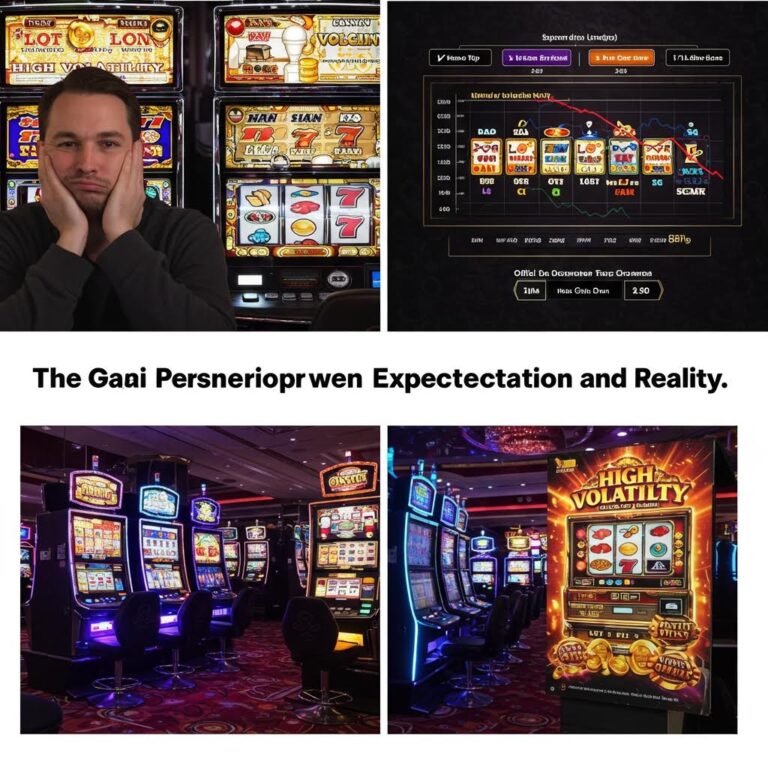The Mind Game of Roulette for New Players
How the Mind Sees Patterns in Roulette
The mind’s way of thinking can really change how one makes choices in roulette. It involves many mind tricks and action habits that every new player must get. Players often face the gambler’s mistake, a false thought that past spins change future spins. This joins with the hot hand mistake and makes wrong patterns seem real. This can change how you bet.
Brain Reactions and Feel-Good Rewards
Your brain’s feel-good zone lights up a lot when you play roulette from close wins and actual wins, setting off dopamine that messes with choices. This brain act creates a strong cycle of thought that impacts how you bet and see risk.
Setting and Time Effects
Time feels weird when you play a lot. Smart set-ups like good lights and sounds make you focus better and feel time move fast. These parts work together to keep you in the game and affect how you bet.
How People Act Together
How people act at the table shapes how you bet, through group thinking and copying bets. Players change their plans without realizing, according to others’ moves, making a web of shared impact that changes game ends. 카지노사이트 추천
How to Keep in Control
Knowing these mind tricks is key to building good control plans. Good players see and beat these mind tricks, making choices clearer during the game.
Tricks the Mind Plays
Understanding Mind Tricks in Roulette Plans
Mind Issues in Players
Mind tricks shape how one thinks and bets at the table. These set mind habits really change how one sees results and makes bets, often causing not-so-great choices.
The Gambler’s Mistake
The gambler’s mistake is a big deal in how people think when playing. Players often fall for the wrong idea that after many reds, black must happen, even though each spin is its own event. This chance mistake can create bad bet habits and big losses.
Hot Hand Mistake and Seeing Patterns
The hot hand mistake is another big mind issue, where players see win runs as a sign of more wins to come. This issue often joins with picking what fits your hopes, making players recall wins that fit their plan and ignore the rest.
Control Dreams and Stickiness
The dream of control shows in players’ faith that their betting systems or habits can sway random outcomes. Stickiness also makes players fix on certain numbers or sequences, creating fake anchors that change how they place future bets.
How This Changes Betting
Knowing these mind tricks is key for smart roulette playing. While knowing doesn’t clear these mind issues, seeing their role helps players make clearer choices and stay in control of their betting plans. This know-how can sharply better game results and risk handling.
Understanding Almost Wins
Understanding the Mind Game of Almost Wins in Gambling
The Three Key Mind Actions Behind Almost Wins
The mind game of almost wins in gambling works through three clear mind actions. Thinking of what could have been makes automatic “what if” thoughts when you just miss winning. Dopamine kicks in during almost wins, sparking brain responses like real wins. The gambler’s mistake gives players wrong ideas about what will happen based on close misses.
How It Plays Out in Roulette
Almost win effects show up strongly in roulette games when the ball lands near the bet numbers. Study proof shows that almost wins stir up stronger feelings than clear losses, leading to more betting. Players often up their bets on numbers that just almost won, even though each spin does its own thing.
Avoiding Almost-Win Mind Traps
Seeing the Illusion
The pull of almost wins comes from the way the wheel looks and the grouping of numbers. This makes a strong mind trick that can beat clear thinking.
Keeping Smart Play
Being sharply aware of almost-win mind games is a must for safe gambling. Each spin is its own, with no links to past spins. Almost wins don’t tell what will happen next, so it’s key to keep clear choices during the game.
How People are Together at the Table
Understanding Social Moves in Roulette
Complex Moves Between Players
The roulette table sets a busy social place where deep moves between players and dealers shape the game. Seeing others leads to often copying bets, showing how group thinking changes personal betting choices. These action habits make a unique feel that can really change game results.
Dealer’s Role and Table Feel
The dealer’s role is key in making the table vibe and player sureness. A good dealer who keeps up positive talks often gets more betting and more risk-taking by players. On the other hand, cold or by-the-book dealing styles often lead to safer betting. Science proof shows a clear link between feeling connected at the table and being brave in betting.
Social Levels and Betting Think
Big betters often set high spots in the table’s social levels, changing the betting air and choice-making of others. Competitive moves come out as players watch and react to others’ wins and losses, often linking their results to shared betting moves. Keeping smart plans is a must as these social pulls can really change set betting plans and overall game ways.
Main Action Habits
- Group thinking changes individual bets
- Feeling together changes how much risk you can take
- Table levels change player sureness and bet choices
- Competitive bits shape betting plans
- Being aware of your mind is key to keeping betting discipline
Staying Cool While Playing
Being the Boss of Your Feelings in Roulette
Getting Your Emotions Right in Roulette
The deep mind bits of roulette need top-notch feeling control from players who want steady play. Building solid feeling handle plans is key for keeping clear choices all through game times.
Handling Winning Feelings
Win runs can spark high feelings that often lead to too sure betting. Setting strong set bet limits is a must to guard against feeling-driven choices. Players who keep a cool head during good runs show better judgment in how long they play and how they bet.
Dealing with Losing Times
Bad feelings in losing times often show as worry, upset, and low spirits. These feeling states often lead to chasing losses, marked by bigger bets. Setting up planned cool-down times and taking set breaks every 30 minutes really resets the mind and stops quick betting choices.
Making Feelings Work for You
Keeping a feelings log during game times helps spot personal trigger habits and responses. This sharp knowing yourself makes way for making cool control ways needed for staying calm in tight spots.
Main Control Ways:
- Set firm betting ends
- Plan regular breaks
- Watch how you react
- Take planned timeouts
- Keep a detailed feelings journal
How Time Feels When You Play
Time Feels in Roulette: Getting How Time Warps When You Play
The Mind Game of Time in Roulette Times
Time warping really changes how you feel when you play roulette, with studies showing clear time feel patterns. Win runs make time feel fast, while losing times often make time feel slow. This mind trick directly changes how you bet and make choices at the table.
Deep Focus and Casino Setting Impacts
Deep focus at the roulette wheel often brings a deep focus state, marked by less time awareness. Casinos boost this by:
- Keeping out natural light
- Taking away clocks and time signs
- Keeping games going non-stop
- Setting lights and sounds just right
These setting bits join to make the best spot for time squeezing, affecting how you watch both play time and betting amounts.
Smart Time Plans for Safe Gaming
Setting Good Time Rules
To keep smart control during roulette times, players should set these time-handling ways:
- Set firm timer alerts
- Plan must-have 30-minute breaks
- Keep an eye on what’s around
- Set clear session ends
- Track real play time vs felt time
These moves work against time warp effects, letting players keep clear choice-making powers and stick to planned gaming ways. Regular time checks and set breaks are key against the mind’s pull of long play times.
Choices Under Stress
Choices Under Stress: Being Your Best in High-Stakes Moments
Getting Your Mind Right Under Stress
Mind power changes a lot when facing big choices, as big mind stress and high feelings shift normal brain work. Moving from clear thinking to feeling-driven acts really shows in key times, changing smart thinking and choice powers.
The Science of Stress and Choices
Brain act patterns show how stress shifts choice-making ways. The thinking brain part works less well while the feeling brain part gets too active, leading to more chance of mind mistakes like the gambler’s mistake. This brain shift can lead to clear choice errors and less sharp analysis skills.
Smart Handling Ways
Ways to Keep Your Mind in Check
- Set clear choice frameworks ahead of time
- Set clear show goals
- Use planned breathing ways
- Watch body signs closely
Seeing Stress Signs
Watch for key signs of stress from pressure:
- Fast heart beat
- Body signs (sweat, tight muscles)
- Mind signs (fast thoughts)
Ways to Be Your Best Under Stress
- Plan regular mind reset times
- Check stress levels often
- Plan pull-back times
- Check mental state before big choices
Keeping the best choice-making powers calls for seeing body stress signs and using the right moves before mind power gets too low.
Risk and Feel-Good Mind Games
Getting Risk and Feel-Good Mind Games in Gambling
The Brain Bits of Gambling Acts
The deep tie between risk and feel-good paths drives roulette choice paths. When looking forward to possible wins, the brain’s feel-good system sets off dopamine, making a strong brain response that often beats clear thinking. This body act shows why players keep going despite big losses, as the brain’s feel-good wiring puts possible wins over clear risks. Merging Bubbling Reels With Fiery Bonus Currents
Mind Habits in Betting
How much risk you can take changes with recent game results. The house money feeling comes out after win runs, leading players to safer bets to keep their wins. On the other hand, losing runs often lead to chase acts, marked by bigger bets to get back losses. This action habit goes with loss and gain theory, which shows deeper cuts from losses than same-sized wins.
The Pull of Almost Wins
Almost win moments really sway how you gamble by sparking brain paths like real wins. When results just miss what you hoped for, players feel pushed to keep going, even though these close calls tell nothing of what will happen next. These mind pulls create strong mind mistakes that can beat clear thinking, making it key for players to see and handle these deep-set action habits.

